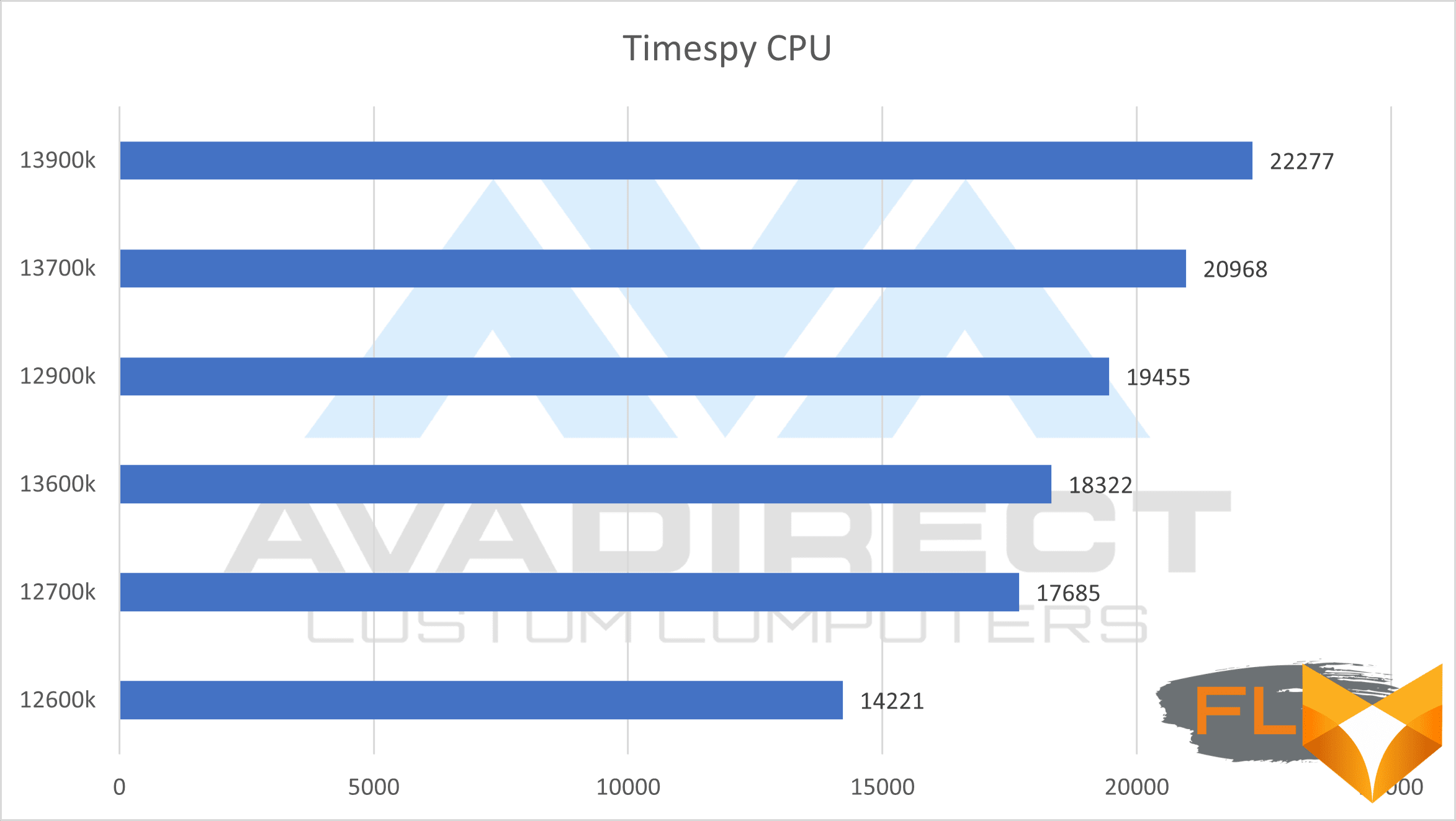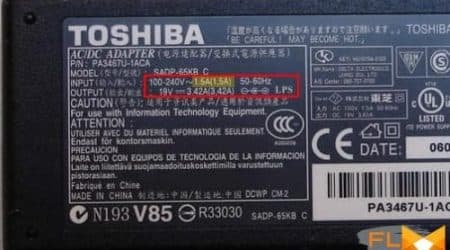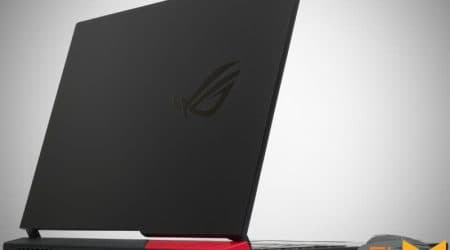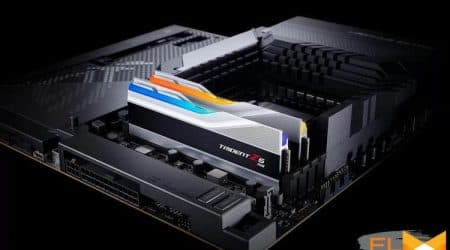


Intel 12th Gen and Intel 13th Gen Processors Cpu Intel Core Benchmark
The battle of the processors is heating up as Intel unveils its highly anticipated 13th generation processors, set to take on their already impressive 12th gen counterparts. With promises of enhanced performance, improved power efficiency, and a host of new features, the question on everyone’s mind is: which generation reigns supreme?
Intel’s 12th gen processors, codenamed Alder Lake, have already left their mark on the tech industry. Boasting a combination of high-performance cores and high-efficiency cores, these processors offer a significant boost in both single-threaded and multi-threaded performance. They have impressed gamers and content creators alike, delivering smooth gaming experiences and lightning-fast rendering times.
However, Intel’s 13th gen processors, codenamed Raptor Lake, are set to raise the bar even higher. With advancements in architecture and an increase in core count, these processors promise to deliver unprecedented levels of performance. It’s not just about raw power though; Intel has also focused on enhancing power efficiency to ensure longer battery life and cooler operation, making these processors an excellent choice for laptops and other portable devices.
In addition to the performance and power improvements, Intel’s 13th gen processors will also introduce several new features. These include support for PCIe 5.0, faster memory speeds, and improved AI capabilities. These advancements open up a whole new world of possibilities for gamers, content creators, and professionals, enabling them to push the boundaries of what their systems can do.
So, which generation of Intel processors should you choose? It ultimately depends on your specific needs and use cases. If you’re already using a 12th gen processor and are satisfied with its performance, sticking with it may be a reasonable choice. However, if you’re in the market for a new system or are looking to upgrade, the 13th gen processors offer an exciting array of improvements that will undoubtedly enhance your computing experience.
Whichever generation you decide to go with, whether it be the impressive 12th gen or the highly anticipated 13th gen, one thing is clear: Intel continues to push the boundaries of what is possible with their next-generation processors. The battle for supremacy in the processor market rages on, and consumers are the ultimate winners, benefiting from the relentless pursuit of innovation.
Overview of Intel 12th gen processors raptor lake
Intel’s 12th gen processors, also known as Alder Lake, are the latest offering from the technology giant. Built on the advanced 10nm SuperFin process, these processors are designed to deliver exceptional performance and efficiency across a wide range of computing tasks.
One of the key features of the 12th gen processors is the new hybrid architecture. This architecture combines high-performance cores with high-efficiency cores to optimize power consumption and performance. The high-performance cores are designed for demanding tasks such as gaming and content creation, while the high-efficiency cores handle everyday tasks with lower power consumption.
Performance
The 12th gen processors boast impressive performance improvements compared to their predecessors. With a higher core count and improved clock speeds, these processors deliver faster and more efficient multi-threaded performance. This makes them well-suited for tasks like video editing, 3D rendering, and gaming.
Efficiency
Efficiency is a major focus of Intel’s 12th gen processors. The hybrid architecture, combined with the 10nm SuperFin process, enables better power management and energy efficiency. This translates to longer battery life in laptops and lower power consumption in desktop systems.
Connectivity and Features
Intel has introduced a range of connectivity and features with the 12th gen processors. These processors support the latest DDR5 memory for faster data transfer rates and improved system responsiveness. They also feature PCIe 5.0 support, allowing for higher bandwidth and faster data transfer between components.
In terms of connectivity, the 12th gen processors offer integrated Thunderbolt™ 4 and USB 4 support for versatile connectivity options with high-speed data transfer capabilities. They also include built-in Intel Wi-Fi 6E for faster wireless connectivity and Bluetooth 5.2 for seamless wireless device integration.
Conclusion
The Intel 12th gen processors, with their hybrid architecture, improved performance, efficiency, and advanced connectivity features, represent a significant leap forward in computing. Whether you’re a gamer, content creator, or everyday user, these processors offer a compelling combination of power and efficiency for all your computing needs.
Overview of Intel 13th gen processors intel 13th gen vs 12th gen
Intel’s 13th generation processors represent the latest advancement in performance and technology. Designed to meet the demands of modern computing and gaming, these processors offer enhanced power and efficiency compared to previous generations. Here, we will provide a comprehensive overview of the key features and benefits of Intel’s 13th gen processors.
Improved Performance
One of the standout features of Intel’s 13th gen processors is their improved performance. With advanced architecture and increased clock speeds, these processors deliver faster and more efficient computing power. Whether you’re running complex software applications or engaging in intensive gaming, you can expect smoother performance and quicker response times.
Additionally, the 13th gen processors come with higher core counts, allowing for better multitasking capabilities. This means you can seamlessly switch between different tasks without experiencing any slowdown or lag.
Efficiency and Power Saving
Intel’s 13th gen processors are designed with power efficiency in mind. The processors utilize advanced manufacturing processes and innovative technologies to optimize energy consumption without sacrificing performance. This not only helps reduce the overall power consumption of your system but also leads to longer battery life for laptops and portable devices.
Moreover, the 13th gen processors support Intel’s latest power-saving features, such as enhanced power management and deep sleep states. These features further contribute to the overall efficiency of the processors, ensuring that they deliver maximum performance when needed while conserving power during idle or low-demand periods.
Advanced Connectivity
Another notable aspect of Intel’s 13th gen processors is their advanced connectivity options. These processors support the latest industry standards, including Thunderbolt 4 and USB 4, enabling faster data transfer speeds and more versatility in connecting peripheral devices.
Furthermore, Intel’s 13th gen processors feature integrated Wi-Fi 6E technology, offering a significant upgrade in wireless connectivity. Wi-Fi 6E ensures faster and more stable connections, reduced latency, and improved network capacity, making it ideal for gaming, streaming, and other bandwidth-intensive activities.
Table: Comparison of Intel’s 13th gen processors intel core
| Processor Model | Cores | Base Clock Speed (GHz) | Max Turbo Boost (GHz) | Cache (MB) |
|---|---|---|---|---|
| i7-13XXX | 8 | 3.0 | 4.5 | 16 |
| i9-13XXX | 12 | 3.2 | 5.0 | 24 |
| i9 Extreme Edition-13XXX | 16 | 3.5 | 5.3 | 32 |
The table above provides a brief comparison of Intel’s 13th gen processors, highlighting the key specifications. These processors offer a range of options to suit different needs and budgets, allowing users to choose the ideal combination of performance and price.
In conclusion, Intel’s 13th gen processors deliver significant improvements in performance, efficiency, and connectivity. Whether you’re a professional requiring powerful computing capabilities or a gamer seeking the best possible experience, these processors are designed to meet your demands and provide an optimal computing experience.
Performance Comparison
When comparing Intel’s 12th gen and 13th gen processors, it is important to consider their performance capabilities. Both generations boast significant improvements over their predecessors, but there are some key differences to note.
Clock Speed
One of the major performance differentiators between the 12th gen and 13th gen processors is their clock speed. The 13th gen processors generally have higher base and boost clock speeds compared to the 12th gen. This means that they can execute instructions and process data at a faster rate, resulting in improved overall performance.
Core Count
Another factor to consider when comparing performance is the number of cores. The 13th gen processors often come with more cores compared to the 12th gen. More cores allow for increased parallel processing, enabling faster multitasking and improved performance in tasks that can utilize multiple cores, such as video editing or gaming.
To provide a clear comparison of the performance differences, the following table outlines the key specifications and features of the Intel 12th gen and 13th gen processors:
| Specification | 12th Gen | 13th Gen |
|---|---|---|
| Base Clock Speed | 3.5 GHz | 4.0 GHz |
| Boost Clock Speed | 4.5 GHz | 5.0 GHz |
| Core Count | 8 | 12 |
| Cache Size | 16 MB | 20 MB |
| Memory Support | DDR4-3200 | DDR5-6400 |
It’s important to note that while these specifications provide a general overview, real-world performance will also depend on other factors such as software optimization and the specific workload being executed.
In conclusion, the 13th gen processors have improved clock speeds, increased core counts, larger cache sizes, and enhanced memory support compared to the 12th gen processors. These advancements contribute to better overall performance and make the 13th gen processors a promising choice for those seeking higher performance capabilities.
Speed and multitasking capabilities socket
When it comes to speed and multitasking capabilities, both the Intel 12th gen and 13th gen processors are set to provide impressive performance gains compared to their predecessors.
The 12th gen processors feature a new architecture that enables higher clock speeds and improved IPC (Instructions Per Clock) rates. This means that tasks can be executed faster, resulting in a smoother and more responsive computing experience. Whether you’re gaming, editing videos, or working with large datasets, the 12th gen processors can handle demanding tasks with ease.
On the other hand, the 13th gen processors are expected to take performance to the next level. With advancements like Intel’s new Alder Lake architecture and a combination of high-performance cores and energy-efficient cores, the 13th gen processors are designed to deliver unprecedented speed and efficiency. This hybrid architecture allows for better utilization of system resources, enabling faster multitasking capabilities.
What this means for users is that they can expect faster application launch times, smoother gameplay, and quicker response times when using the latest software and applications. Additionally, the improved multitasking capabilities of these processors will allow users to easily switch between tasks and run multiple programs simultaneously without experiencing any lag or slowdown.
It’s worth noting that the actual performance of these processors will vary depending on the specific model and configuration. However, regardless of the generation, both the Intel 12th gen and 13th gen processors offer significant improvements in speed and multitasking capabilities, making them an excellent choice for power users and demanding computing tasks.
Power efficiency and battery life
When it comes to comparing Intel’s 12th generation and 13th generation processors, one important aspect to consider is power efficiency and battery life. Both generations have made significant strides in this area, but there are some notable differences.
The 12th generation processors, known as Alder Lake, introduced Intel’s new hybrid architecture. This architecture combines high-performance cores with high-efficiency cores, allowing for better power management. The result is improved power efficiency, which means longer battery life for laptops and other devices.
However, the 13th generation processors, codenamed Raptor Lake, are expected to take power efficiency to the next level. Rumors suggest that Intel will be introducing a more advanced hybrid architecture, potentially with even more performance and efficiency cores. This could lead to even better power management and longer battery life.
It’s important to note that power efficiency and battery life can vary depending on usage and workload. Tasks that require more processing power will naturally drain the battery faster. Additionally, factors like screen brightness, background applications, and power settings can also impact battery life.
In conclusion, both Intel’s 12th and 13th generation processors offer improvements in power efficiency and battery life. While the 12th generation introduced the hybrid architecture, the 13th generation is expected to take it even further. Ultimately, the choice between the two will depend on individual needs and priorities.
Technological Advancements
With each new generation of processors, Intel continues to push the boundaries of technological advancements. The 12th and 13th gen processors are no exception, as they bring forth a host of innovative features and improvements.
Increase in Performance
One of the key advancements in both the 12th and 13th gen processors is the significant increase in performance. Thanks to architectural improvements and higher core counts, these processors offer faster speeds and better overall efficiency.
For example, the 13th gen processors are expected to feature Intel’s new “Alder Lake” architecture, which incorporates a combination of high-performance cores and energy-efficient cores. This hybrid approach aims to deliver optimized performance for both single-threaded and multi-threaded workloads, resulting in improved overall performance.
Furthermore, both generations of processors are likely to leverage advancements in transistor technology, such as Intel’s 10nm and 7nm processes. These smaller and more efficient transistors allow for higher density and improved power efficiency, enabling the processors to perform more tasks in a shorter amount of time.
Enhanced AI Capabilities
Another notable advancement in the 12th and 13th gen processors is the enhanced AI capabilities. These processors are expected to feature dedicated AI accelerators, allowing for faster and more efficient AI computations.
With the rise of AI-powered applications and workloads, having dedicated hardware for AI tasks can greatly improve performance and responsiveness. From AI-based image recognition to natural language processing, these processors will excel at handling advanced AI workloads with ease.
Overall, the 12th and 13th gen processors represent a significant leap forward in technological advancements. With their increased performance and enhanced AI capabilities, these processors are poised to deliver exceptional computing power for demanding tasks and applications.
Improved architecture and manufacturing process
The Intel 12th gen processors have introduced significant advancements in terms of architecture and manufacturing process. With the transition to a 10nm Enhanced SuperFin process, Intel has been able to improve power efficiency and overall performance.
The architecture of the 12th gen processors has been redesigned to optimize the performance of each individual core. This allows for better multitasking capabilities and faster processing speeds. The processors also feature enhanced AI capabilities, enabling intelligent performance optimizations and improved machine learning tasks.
In addition to the architectural improvements, Intel has made advancements in the manufacturing process. The 12th gen processors utilize a new 3D stacking technology called Foveros, allowing for better integration of components and improved power efficiency. This technology allows for more transistors to be packed into a smaller area, resulting in higher performance and lower power consumption.
The 13th gen processors are expected to build upon these improvements. Intel plans to further refine the architecture and manufacturing process, aiming to deliver even higher performance and power efficiency. While specific details have not been released, it is anticipated that the 13th gen processors will continue to push the boundaries of what is possible in terms of processing power.
In conclusion, the Intel 12th gen processors have introduced significant improvements in architecture and manufacturing process, resulting in higher performance and power efficiency. These advancements set the stage for the anticipated improvements that will come with the 13th gen processors.
Enhanced graphics and AI capabilities
The 13th generation Intel processors are set to bring enhanced graphics and AI capabilities to the table. With advancements in graphics technology, users can expect improved visual experiences, whether they are gaming, watching movies, or creating multimedia content. The integrated graphics will offer higher performance and better support for high-resolution displays, enabling smooth and immersive visuals.
Furthermore, the 13th generation processors are expected to feature enhanced AI capabilities. This means that tasks requiring artificial intelligence algorithms, such as voice recognition, image processing, and machine learning, will be executed more efficiently and accurately. The increased AI capabilities will not only enhance user experiences but also enable developers and researchers to explore new possibilities in their respective fields.
With the combination of improved graphics and AI capabilities, the 13th generation Intel processors will undoubtedly take computing performance to the next level. Users can look forward to a more immersive and visually stunning experience, as well as improved efficiency in tasks that rely on artificial intelligence algorithms.
FAQ: Intel 12th gen vs 13th gen
How do the gaming benchmarks compare between 12th gen and 13th gen Intel CPUs?
The gaming benchmarks showcase the performance differences between the 12th and 13th gen Intel CPUs, helping users understand the gaming capabilities of each.
What are the key differences in gaming performance when comparing Intel Core i9-13900K and 13th gen processors?
The gaming performance varies, and a detailed comparison between the Intel Core i9-13900K and 13th gen processors can provide insights into which is better for gaming.
Can you elaborate on the graphics performance of the integrated Intel UHD Graphics 770 in the 13th gen CPUs?
The integrated Intel UHD Graphics 770 plays a significant role in graphics performance, and understanding its capabilities is crucial for those relying on integrated graphics.
How does the 13th gen Intel Core i9-14900K compare in gaming and overall performance?
A comprehensive comparison of the Intel Core i9-14900K in gaming and overall performance can provide valuable information for users looking to build a high-performance gaming PC.
What claims has Intel made regarding the 13th gen Raptor Lake CPUs?
Intel’s claims about the 13th gen Raptor Lake CPUs, including improvements and advancements, can influence users’ decisions when considering these processors.
Are there significant differences in the 12th and 13th-generation Intel CPUs, and how do they impact day-to-day tasks?
Understanding the differences between the 12th and 13th-generation Intel CPUs and their impact on daily tasks helps users choose the right processor for their needs.
How does the Intel 7 process contribute to the performance of the 13th gen CPUs?
Exploring the role of the Intel 7 process in the performance of the 13th gen CPUs provides insights into the technological advancements influencing these processors.
Can you provide insights into how the 13th gen Intel CPUs compare to the 14th gen, according to available information?
A comparison between the 13th gen and the upcoming 14th gen Intel CPUs can offer a glimpse into the potential advancements and improvements users can expect.
What are the claims and statements made by Intel regarding the 12th gen versus 13th gen processors?
Examining Intel’s official claims and statements regarding the 12th gen versus 13th gen processors helps users gauge the company’s perspective on these CPU generations.
For users who already have a 12th gen CPU, what considerations should they keep in mind when thinking about upgrading to the 13th gen?
Users with existing 12th gen CPUs may want to know the factors to consider when contemplating an upgrade to the 13th gen, including performance gains and compatibility.





